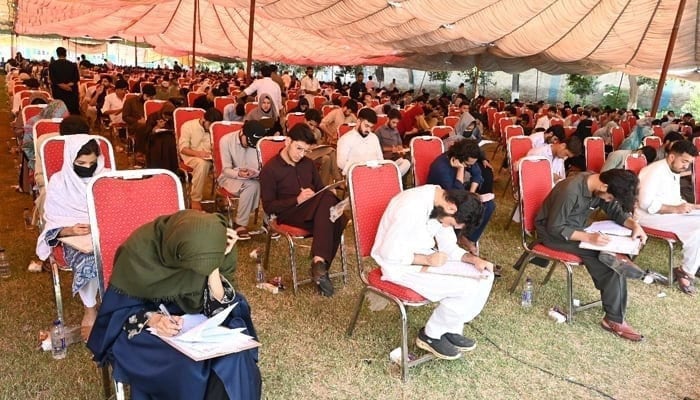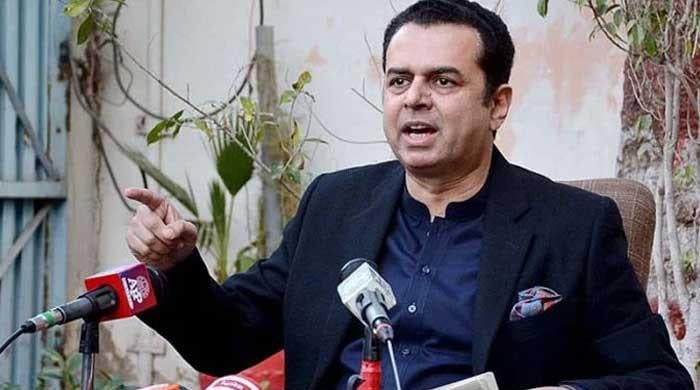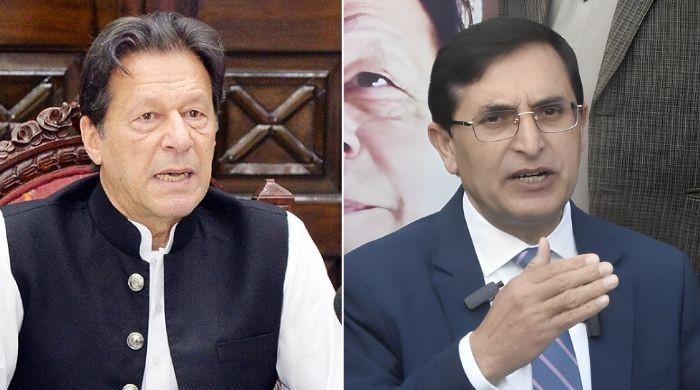MDCAT to be held under new policy in Sindh
Provincial health department will regulate MDCAT and admissions across Sindh, decides cabinet
August 07, 2025

The Sindh cabinet on Thursday finalised a comprehensive Medical and Dental College Admission Test (MDCAT) admission policy for the MBBS and BDS programmes across public and private medical and dental colleges in the province.
The provincial cabinet meeting, headed by Sindh Chief Minister Syed Murad Ali Shah, designated the Sukkur IBA Testing Agency (SIBA) as the current testing agency due to its satisfactory performance in MDCAT-2024, but future selections will remain performance-based.
The huddle made the decision in compliance with the Pakistan Medical and Dental Council (PMDC) Act, 2022 and the Sindh High Court (SHC) directive.
It was decided in the meeting that the provincial health department, however, would regulate the MDCAT and admissions across Sindh.
As per the PMDC Act, a uniform, province-wide MDCAT test must be conducted annually, with the provinces required to frame a formal policy, read a statement issued by the Sindh Chief Minister's House.
MDCAT Policy includes strict adherence to PMDC rules for merit determination, pass percentages, and eligibility, it added.
For the applicants, a Sindh domicile is mandatory, with verification through Juvenile Cards and biometric authentication.
The seat allocation and distribution for all medical colleges and universities will be published in the annual Prospectus for Session 2024-25, which cannot be altered by the admitting universities, the statement added.
However, the provincial health department retains the authority to conduct the admissions process directly or through any nominated medical university. A supervisory committee will be notified by the department to oversee the process when handled by a university.
CNIC-based vehicle registration
Besides the MDCAT policy, the provincial cabinet approved a series of wide-ranging reforms, including the launch of CNIC-based vehicle registration and a province-wide reassessment of 3,371 protected heritage buildings.
The cabinet gave the green light to register seized government vehicles with altered chassis, establish Vehicle Fitness Inspection Centres, and grant a final extension in service and salary payments for COVID-19-era technical and supporting staff.
The meeting reviewed a proposal by the excise department to introduce a CNIC-based vehicle registration system, along with Personalised Registration Marks (PRMs).
The new system will link registration marks directly to a vehicle owner’s CNIC rather than the vehicle’s chassis, allowing owners to retain and reuse their personalised number plates even after selling their vehicle.
The Vehicle Identification Number (VIN) will now be based on the chassis number, which remains the permanent identifier of the vehicle.
PRMs can be retained, reused, or surrendered by owners.
The system enables real-time traceability of vehicles and aligns with international standards.
CNIC-linked registration promotes easy tracking of taxpayer assets and improves administrative convenience.
It will be a modernised, owner-centric registration system with Integration with NADRA’s national database.
The cabinet, in principle, approved the CNIC-based registration model and its legal amendments to bring Sindh’s system in line with global best practices and recent reforms in the Islamabad Capital Territory.
The CM directed the Excise and Taxation Department to develop the CNIC-based system and then begin its testing, followed by amending the necessary law.
The CNIC-based vehicle registration would not be implemented immediately, but he would hold follow-up meetings to oversee its implementation once it has been properly tested.









